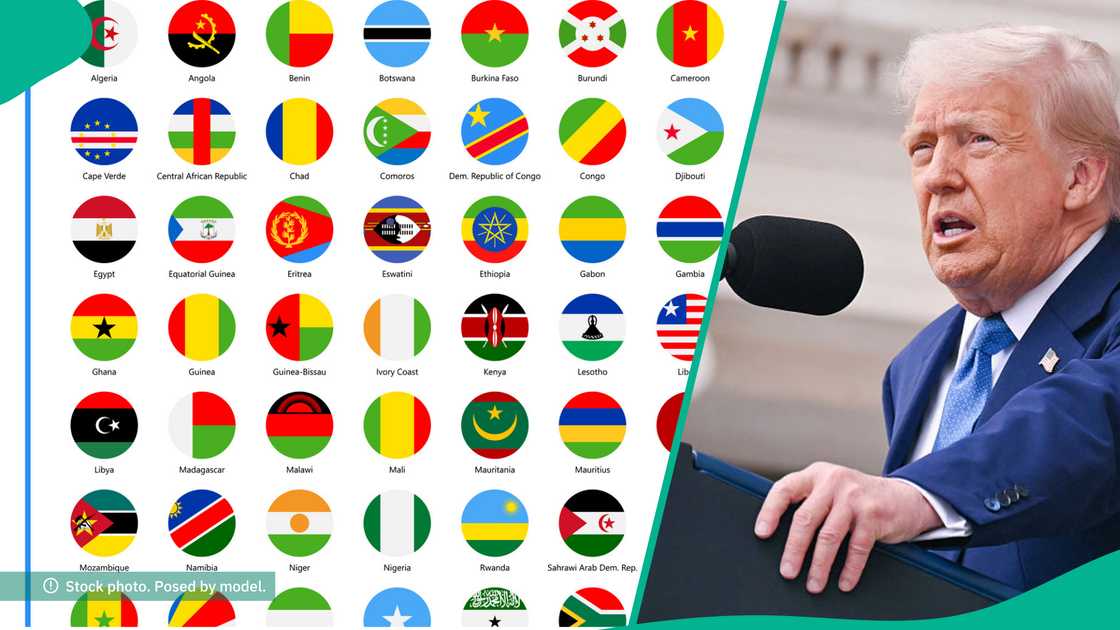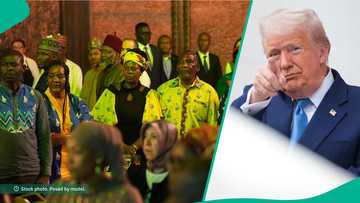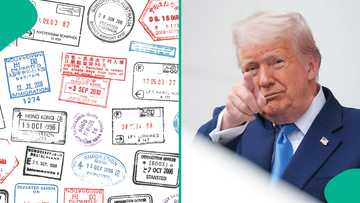5 Reasons Trump Banned and Restricted 10 African Countries from Coming to the US
- President Trump has enforced a travel ban on 10 African nations, citing national security and immigration policy concerns
- The administration points to high visa overstay rates, lack of cooperation on deportations, and potential terrorist threats as justification for the restrictions
- Critics argue that the move could strain US-Africa relations and disrupt educational and economic exchanges between the two regions
US President Donald Trump has imposed a travel ban and restrictions on 10 African countries, citing national security concerns and immigration policy violations.
The move has sparked widespread debate, with critics questioning its impact on diplomatic relations and economic ties.
Here are five key reasons behind the ban.

Source: Getty Images
1. National security concerns
Trump argues that some of the banned countries pose a security threat to the US due to weak governance and ongoing conflicts.
Nations such as Libya, Somalia, and Sudan are embroiled in civil wars, making it difficult for their governments to issue reliable passports and conduct proper screening.

Read also
African Union reacts after Trump banned and restricted 10 African countries from coming to US
The administration claims that these conditions increase the risk of terrorism and illegal immigration.
2.High visa overstay rates
The US government has identified certain African nations with alarmingly high visa overstay rates. For example, Equatorial Guinea has a visa overstay rate of up to 70% for some visa types.
Chad, Congo-Brazzaville, and Eritrea also have significant numbers of nationals who remain in the US beyond their permitted stay, violating immigration laws.
3. Lack of cooperation on deportations
Trump’s administration has accused some African countries of refusing to accept deported nationals. Eritrea, for instance, has been criticised for failing to provide criminal records of its citizens and rejecting deportation requests. This lack of cooperation complicates US immigration enforcement efforts and is cited as a justification for the ban.
4. Concerns over terrorist presence
The White House has pointed to historical terrorist activity in some of the banned nations. Somalia is described as a “persistent terrorist threat,” while Libya has been flagged for its history of harbouring extremist groups. The administration argues that restricting travel from these countries is necessary to prevent potential security risks.
5. Strained diplomatic relations
The African Union has expressed concerns over the ban, warning that it could disrupt diplomatic ties, educational exchanges, and commercial engagements between Africa and the US.
The organisation has urged the US to adopt a more consultative approach and engage in dialogue with the affected nations to address underlying issues.
Trump’s travel ban on 10 African countries is driven by security concerns, immigration enforcement, and strained diplomatic relations.
While the administration defends the move as necessary for national security, critics argue that it risks damaging US-Africa relations and unfairly targets certain nations. The long-term impact of the ban remains to be seen.
African countries banned from coming to US
Legit.ng earlier reported US President Donald Trump signed a proclamation enforcing new travel restrictions, citing security concerns.
The ban, which takes effect on 9 June, fully restricts nationals from multiple African countries while imposing partial restrictions on others.
The proclamation blocks entry for nationals from the African countries.
Source: Legit.ng



